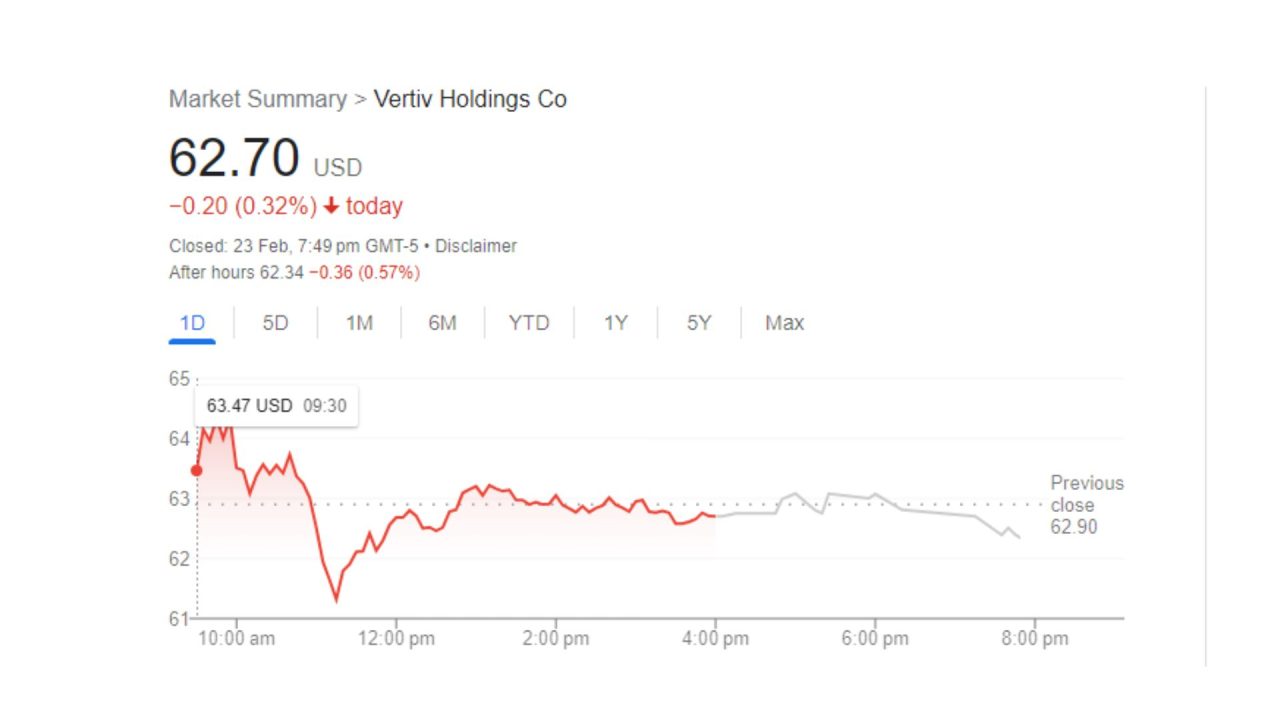In premarket trading on Wednesday, Vertiv Holdings Co.’s stock witnessed a decline of more than 10% after the digital infrastructure company fell short of its fourth-quarter revenue target and provided a cautious outlook for the next quarter.
Despite expressing optimistic views on its potential to drive growth in Artificial Intelligence (AI), Vertiv Holdings experienced a retracement of some of its substantial gains, which had reached double-digit percentages in 2024.
For the fourth quarter, Vertiv reported a net income of $232.6 million, or 60 cents per share, compared to $26.6 million, or 7 cents per share in the same quarter the previous year. The adjusted profit of 56 cents per share surpassed the FactSet consensus estimate of 53 cents per share.

However, the company’s revenue for the fourth quarter increased by 13% to $1.87 billion, falling short of the analyst estimate of $1.89 billion.
Looking ahead, Vertiv anticipates an adjusted profit of 32 cents to 36 cents per share for the first quarter, below the analyst estimate of 37 cents per share. For the full year 2024, the company expects adjusted earnings to be in the range of $2.20 to $2.26 per share, as opposed to the Wall Street estimate of $2.24 per share.
Following these announcements, Vertiv’s stock experienced an 11% decline in premarket trading, reaching $55.05. Before these developments, the stock had demonstrated a 29% increase in 2024, in contrast to a 4.5% drop in the Nasdaq COMP during the same period.

Vertiv’s Chief Executive, Giordano Albertazzi, expressed confidence in the company’s outlook, emphasizing the “tremendous opportunity” presented by the use of Artificial Intelligence in data centers.
Albertazzi highlighted the significance of Vertiv’s fourth-quarter acquisition of CoolTera and its ongoing commitment to customer support, positioning the company strongly in the liquid cooling sector for high-density compute applications driven by AI demand.
While Vertiv Holdings reported notable improvements in net income and adjusted profit, the shortfall in revenue for the fourth quarter and the cautious outlook for the first quarter and full year 2024 contributed to a market response marked by a significant premarket decline in the company’s stock value.


